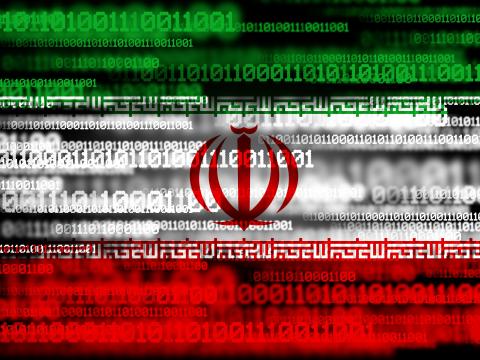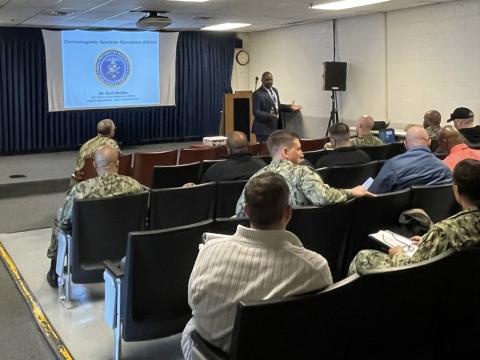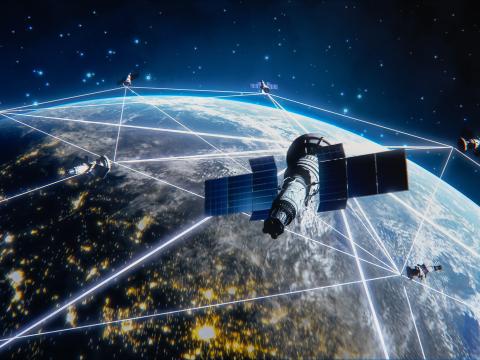Prometheus Unleashed
Research and education are the foundation for the unknown challenges of tomorrow.
Our disabled veterans should know that their sacrifice brings opportunity and their efforts today will be rewarded with lifelong personal growth tomorrow through continued service to their government. We must seek to replenish the science and technology labor force in government with wounded veterans, not only for their sake but for our own continued survival.
We live in a technological age and take many of its marvels for granted. Yet, mastering the management challenges of monumentally complex technological projects is not a foregone conclusion. In his book Rescuing Prometheus, Thomas P. Hughes describes four seminal projects that changed the world through technological advancements, illustrating the rich and productive intertwining of the military-industrial-university complex as well as describing a world locked in a potentially deadly battle between the superpowers, bureaucratic inertia, technological prowess, bull-headed drive, creativity and political will to survive.
Just as industrial challenges in the past half-century drove development of complex engineering solutions and many of the technical advances we now take for granted, future large-scale systems management issues will not be any easier to address. In the past, our nation relied heavily on a so-called military-industrial complex to do this. National strategic imperatives still demand that future challenges be solved by the government institutions best equipped to provide and preserve our competitive advantage. Those advantages were and are reliant on a work force capable of understanding, recognizing and solving future scientific and technical engineering issues. But where will this future work force come from?
There can be no question of the sacrifices that our veterans have made in the past five years. There are many programs to assist them in their transitions—programs that hopefully provide them with a sustainable future. But despite all of the opportunities available on the outside, wouldn’t it also be wise to leverage their operational experience inside the government by continuing their service as civil servants? This approach could add immediate value to the U.S. Defense Department (DOD) by instituting a service-for-scholarship program that encourages veterans to get advanced education in science and technology and then to continue their government careers as civil servants.
Surely our nation would both benefit from their experience and at the same time refill the dwindling ranks of educated science and technology professionals. Doesn’t it make sense that continued care for those who sacrificed so much be provided with continued government service? Shouldn’t future DOD leaders have military experience and the technical knowledge suited to the needs of the department in the information age? While we should make every effort to integrate combat-wounded veterans into the DOD science and technology work force, this requires dedicated funding and demands focused leadership.
Our nation must provide advanced technical training, skills and university degrees—from bachelor through doctoral—to qualified, recently wounded and permanently disabled veterans. We should establish a scholarship-for-service program, providing academic scholarships to disabled veterans in exchange for future service to their nation. This would offer a partial solution to the national challenge of replenishing the dwindling science and technology work force with qualified, honorably discharged wounded military men and women who have relevant operational experience. This approach, which I call Prometheus Unleashed, aims squarely at both challenges.
Ensuring that our competitive advantage today continues will require government stewardship through sustained intellectual competence and the educational advancement of our population. While the value of past DOD expenditures continues to depreciate because of GWOT, investing in intellectual networks will only appreciate exponentially. Human capital in the form of brute force labor already has given way to individually centered, intellectually based, creative human assets who connect and collaborate through information networks on a scale that exceeds anthropological explanation.
Power and wealth, regardless of how humble an individual’s beginning, will continue to accrue to those who are capable of creating new knowledge the fastest. Educating for the speed of change is the only certainty that exists in the future. Research and education alone will be the only way to ensure our own competitive survival.
While operational experience has value for near-term problems, educational competence trumps experience when solving for the unknown challenges of tomorrow. Generating this work force is a major challenge for DOD and the services. What role can or should our government institutions play? Will we act as visionaries to ensure that future generations enjoy what we have come to expect? If we act, how long will it take us to respond? What new crisis will drive us into action, and who will take immediate responsibility for the impending shortfall? Who will stand up to take a leading role for ensuring that we do not fall behind current enemies and future competition?
The answer is simple. Each of us must invest in research and academic programs that educate the men and women who served our nation honorably. We must prepare them for a productive and rewarding future inside the government, because our advancing age will force us to step aside sooner than we have planned.




Comments